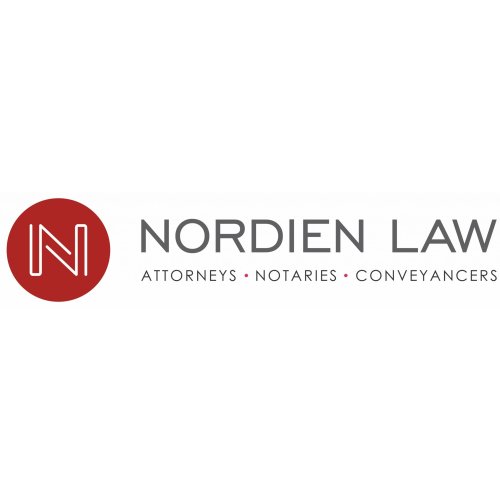Best Water Law Lawyers in South Africa
Share your needs with us, get contacted by law firms.
Free. Takes 2 min.
Or refine your search by selecting a city:
List of the best lawyers in South Africa
About Water Law in South Africa
Water Law in South Africa refers to the body of legislation, regulations, and common law principles that govern the use, management, conservation, and protection of water resources throughout the country. South Africa, being a water-scarce nation, places great emphasis on sustainable and equitable water management for all users. The primary legislation governing this field is the National Water Act 1998, which seeks to ensure that every person has access to clean, usable water while balancing the needs of people, the environment, and the economy. Water Law covers issues such as access rights, allocation, pollution control, licensing, catchment management, and dispute resolution between users.
Why You May Need a Lawyer
There are various situations where legal guidance in Water Law becomes crucial. Common reasons include disputes over water rights between property owners, challenges related to water use licenses, regulatory compliance for businesses or farmers, allegations of water pollution or over-abstraction, involvement in public participation processes, land development projects near water bodies, or when a community believes its right to clean water has been infringed. Navigating complex regulations and ensuring your interests are protected requires the expertise of a lawyer familiar with South Africa's Water Law framework.
Local Laws Overview
The foundational statute in South African Water Law is the National Water Act 1998. This Act recognizes water as a national resource and stipulates that water use must be licensed, unless it falls under certain permissible use scenarios. Key principles include the public trusteeship of the state over all water resources, equitable access to water for all citizens, the need for environmental protection, and the prioritization of basic human needs and environmental sustainability.
Other relevant laws may include the Water Services Act 1997, which focuses on municipal responsibility to supply water and sanitation services, and regional by-laws enforced by municipalities and water boards. Compliance with water quality standards, effluent discharge permits, and integrated water resource management are overseen by the Department of Water and Sanitation, and various water management institutions established under the Act.
Frequently Asked Questions
What is the National Water Act and why is it important?
The National Water Act 1998 is the main law regulating water use in South Africa. It ensures that water use is equitable, sustainable, and environmentally sound. It also empowers the state as 'public trustee' of water resources.
Do I need a license to use water from a river or borehole?
In most cases, you do need a water use license to abstract water from natural sources. However, certain limited uses, called "Schedule 1" uses (such as basic domestic needs), do not require a license.
How can I apply for a water use license?
You must apply through the Department of Water and Sanitation. The process involves submitting detailed information about your intended use, and may take several months as authorities assess the potential impact.
What rights do communities have regarding water access?
The Constitution guarantees everyone the right to access sufficient water. Local municipalities and water boards must ensure this right, especially for vulnerable and rural communities.
Who is responsible for managing water quality and pollution?
The Department of Water and Sanitation monitors and enforces laws on water quality and pollution. Anyone causing water pollution may face fines, clean-up orders, or prosecution.
What can I do if my neighbour is polluting a water source?
You can report the pollution to the Department of Water and Sanitation, your local municipality, or seek legal advice to secure a court order for the pollution to stop and be remedied.
Are there legal requirements for storing rainwater or greywater?
Rainwater harvesting is encouraged but certain large-scale systems or discharge of greywater may be subject to local by-laws and permits, especially if it affects public health or the environment.
What is the role of water user associations and catchment management agencies?
These organizations help manage water resources at local and regional levels, ensuring equitable access, resolving user disputes, and implementing conservation measures.
Can businesses or farmers lose their water rights?
Yes, if they violate the terms of their water use license, pollute water sources, or fail to comply with regulations, their license can be amended, suspended, or revoked.
What legal remedies exist if my water rights are infringed?
You can file a complaint with the Department of Water and Sanitation, engage with local authorities, or seek an interdict or damages through the courts if your rights are not upheld.
Additional Resources
- The Department of Water and Sanitation - Offers information about water use licenses, current regulations, and reporting pollution. - Water Research Commission - Provides research publications, reports, and guidance on water management topics. - Legal Aid South Africa - Offers free basic legal advice for qualifying individuals with water access disputes. - Provincial and local municipal water service offices - For by-law enforcement and local water quality issues. - Environmental organizations such as WWF South Africa and the Centre for Environmental Rights - For advocacy and legal training resources.
Next Steps
If you believe you need legal assistance regarding Water Law issues:
- Gather all relevant documents such as water use licenses, municipal notices, contracts, correspondence, and any evidence of the water issue. - Clearly outline the nature of your concern or dispute, including dates, affected parties, and actions already taken. - Contact a lawyer who specializes in environmental or Water Law. They can provide specific advice and represent you in negotiations or legal proceedings if needed. - You can approach Legal Aid if you cannot afford private legal services or consult your local municipality’s water office for first-line advice.
Addressing Water Law matters early with professional support can help protect your rights, prevent fines or legal action, and ensure a sustainable, equitable outcome for all parties involved.
Lawzana helps you find the best lawyers and law firms in South Africa through a curated and pre-screened list of qualified legal professionals. Our platform offers rankings and detailed profiles of attorneys and law firms, allowing you to compare based on practice areas, including Water Law, experience, and client feedback.
Each profile includes a description of the firm's areas of practice, client reviews, team members and partners, year of establishment, spoken languages, office locations, contact information, social media presence, and any published articles or resources. Most firms on our platform speak English and are experienced in both local and international legal matters.
Get a quote from top-rated law firms in South Africa — quickly, securely, and without unnecessary hassle.
Disclaimer:
The information provided on this page is for general informational purposes only and does not constitute legal advice. While we strive to ensure the accuracy and relevance of the content, legal information may change over time, and interpretations of the law can vary. You should always consult with a qualified legal professional for advice specific to your situation.
We disclaim all liability for actions taken or not taken based on the content of this page. If you believe any information is incorrect or outdated, please contact us, and we will review and update it where appropriate.
Browse water law law firms by city in South Africa
Refine your search by selecting a city.















